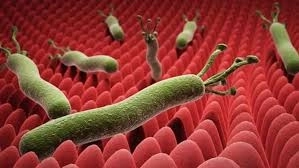
Dual Therapy for H. Pylori: When Does It Work and When Does It Fail? With Dr. Gamal El-Sanhoury
Published on: 2025-06-26 | Written by: Dr. Gamal El Sanhouri, Consultant of Internal Medicine, Digestive System, Liver and Diets
Helicobacter pylori (H. pylori) is one of the most common causes of chronic gastritis and peptic ulcers. If not treated properly, it can lead to serious digestive issues.
Dr. Gamal El-Sanhoury, Consultant of Internal Medicine, Gastroenterology, Hepatology, and Infectious Diseases, explains that dual therapy is among the most widely used and effective treatments — but success depends on several key factors.
What Is Dual Therapy for H. pylori?
Dual therapy typically involves using two antibiotics combined with a proton pump inhibitor (PPI) to reduce stomach acid.
According to Dr. Gamal El-Sanhoury, this approach is often used when triple therapy fails or when antibiotic resistance is suspected.
When Is Treatment Successful?
Dr. Gamal El-Sanhoury notes that treatment success depends on:
-
Accurate diagnosis of the bacterial strain and its resistance pattern
-
Full adherence to the prescribed dosage and treatment duration
-
Taking the medication on time without skipping doses
-
Following a stomach-friendly diet during and after treatment
Why Does the Infection Sometimes Return?
Dr. Gamal El-Sanhoury explains that recurrence may happen due to:
-
Poor compliance with treatment
-
Antibiotic-resistant bacterial strains
-
Weakened immune system or underlying conditions
-
Unhealthy dietary habits or smoking
-
Re-infection through contaminated food, water, or utensils
What to Do After Treatment?
Dr. Gamal El-Sanhoury emphasizes the importance of post-treatment testing, such as a stool antigen test or urea breath test, to ensure the infection is fully cleared. He also recommends:
-
Avoiding spicy or fried foods
-
Ensuring food and water hygiene
-
Managing stress and anxiety
-
Quitting smoking
-
Maintaining a healthy lifestyle to prevent recurrence
Conclusion
Dual therapy for H. pylori can be highly effective when properly prescribed and followed.
Dr. Gamal El-Sanhoury stresses that both prevention and follow-up are just as crucial as the treatment itself to ensure long-term recovery and prevent reinfection.

